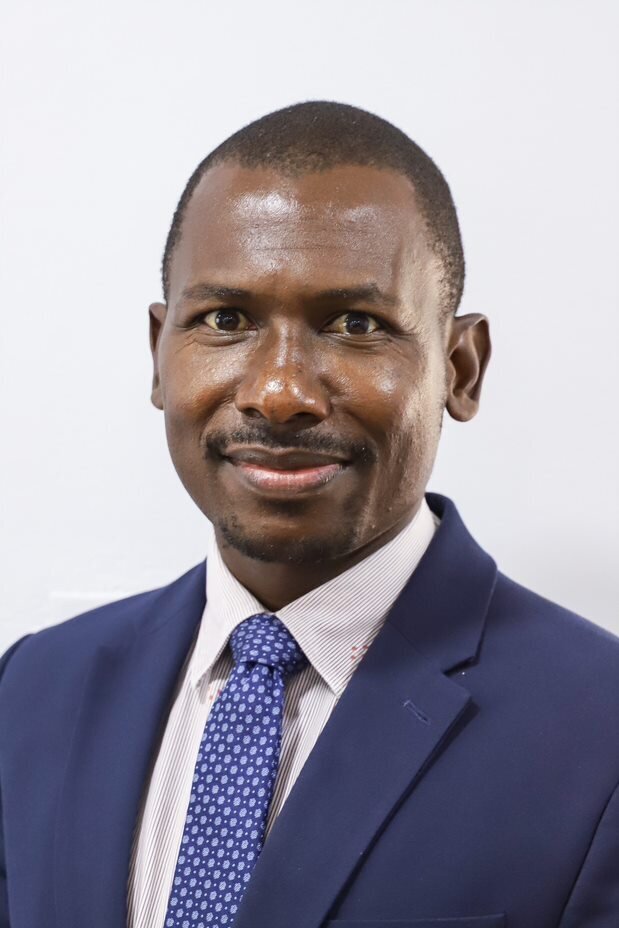By: Chiamaka Mogo
Franz Celestin
“IOM’s work recognizes the link between migration, socio-economic and cultural development, as well as, the right of freedom of movement.”
(Photo supplied by Franz Celestin)
The International Organization for Migration (IOM) is the United Nations Migration Agency. The IOM branch in Nigeria is led by Chief of Mission Franz Celestin. This interview between the Initiative for Inclusive Dialogue in Nigeria (IIDN) and the Chief of Mission, touches on actions being taken to enable the well-being of Nigerian migrants, including returnees and internally displaced persons:
Who is Franz Celestin?
I am the Chief of Mission of IOM Nigeria, where, I oversee IOM’s activities throughout the country. Before assuming the Chief of Mission position, I was the Deputy Chief of Mission and Regional Program Manager of the Support to Free Movement of Persons and Migration in West Africa (FMM West Africa) at IOM Nigeria.
I joined the IOM Regional Office for North America and the Caribbean in 2006 in Washington, DC, where, I coordinated IOM’s activities throughout the Caribbean. I have experience working in Haiti, the Dominican Republic, Trinidad and Tobago, Guyana, among others.
Please briefly describe the mandates of IOM Nigeria.
IOM works to support the Federal Government of Nigeria to help ensure the orderly and humane management of migration, to promote international cooperation on migration issues, to assist in the search for practical solutions to migration problems and to provide humanitarian assistance to migrants in need, including refugees and internally displaced people. IOM’s work recognizes the link between migration, socio-economic and cultural development, as well as, the right of freedom of movement. IOM’s activities that cut across migration management include the promotion of international migration law, policy debate and guidance, protection of migrants’ rights, migration health and the gender dimension of migration.
What strategies have the organization applied to execute those mandates?
IOM Nigeria works closely with all relevant stakeholders as far as its mandate is concerned and these include Ministries, Departments and Agencies of the Federal Government, Civil Society Organizations (CSOs), donor counterparts, the private sector, United Nations Agencies and International Non-Governmental Organizations (INGOs).
Migration is recognised as a social determinant of health. Can you discuss IOM Nigeria's migrant health assistance processes?
Migration health assessments are among the most well-established migration management services offered by IOM. At the request of receiving country governments, IOM provides an evaluation of the physical and mental health status of migrants prior to their departure for the purpose of resettlement, international employment, enrolment in specific migrant assistance programmes, or for obtaining a temporary or permanent visa.
Reflecting national differences in immigration and public policies and practices, there is a diverse range of health assessment requirements among receiving countries. These requirements may be specific to certain diseases of public health concern such as tuberculosis, as is the case with the United Kingdom Tuberculosis Detection Programme; requirements may also be more general in nature, or include additional interventions, such as vaccinations. But despite differences in health assessment requirements among countries, one thing remains constant: the need to ensure that the migration process does not endanger the health of either the migrant or host communities.
What kinds of impacts have the COVID-19 pandemic had on the work of IOM Nigeria, with regards to facilitating the return of migrants and also, survivors of trafficking?
The pandemic has increased the vulnerability of victims of trafficking and returnees, due to the socio-economic impacts of the pandemic. IOM is working to support vulnerable communities build back better.
How can people stay updated on the work of IOM Nigeria?
IOM has solid media presence on YouTube, LinkedIn, Facebook, Twitter, Instagram and on the IOM Website.
About the Initiative for Inclusive Dialogue in Nigeria (IIDN)
IIDN is a registered, non-governmental organization. We promote social cohesion and sustainable development in Nigeria, through our educational, capacity-building and awareness-raising efforts. Our vision is to foster a nation where all Nigerians are committed to mutual respect, equity and the sustainable use of our nation’s many resources. Learn more: http://www.iidnigeria.org

